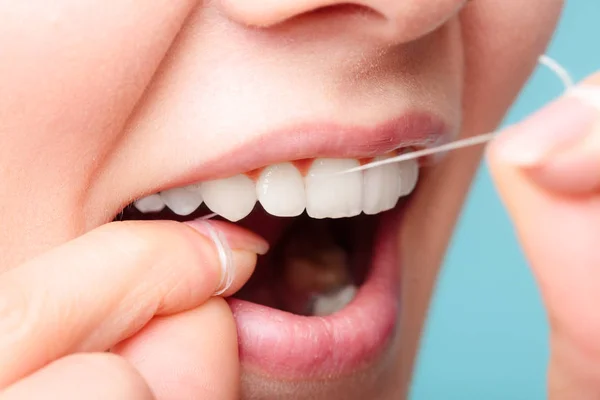Chewing Brisket Bone has no scientific evidence to prove it can help to make teeth stronger.
Brisket bones are the bones that are located in the brisket, which is a cut of beef that comes from the lower chest area of the cow. The animal pieces are typically large and flat, and they are surrounded by a layer of meat and fat.
Brisket bones are hard and can damage your teeth if chewed. Again, there is no research to support the claim that chewing brisket bones makes teeth stronger.
In fact, chewing on hard objects can put stress on your teeth and gums, leading to cracks, chips, and even tooth loss. If you have any dental problems, such as weak teeth or gum disease, it is best to avoid chewing on hard foods altogether.
Brisket bones are not typically eaten by humans, but they are sometimes used to make bone broth.
If you are looking for a way to strengthen your teeth, Here’s how to go about it.
Brush your teeth twice a day for two minutes each time

Why is this important? Well, brushing helps remove plaque and bacteria that can lead to decay and gum disease. By being diligent with your brushing routine, you’re giving yourself the best chance at maintaining healthy teeth and gums.
So how do you ensure that those two minutes count? First, choose a soft-bristled toothbrush that fits comfortably in your mouth. Apply just enough pressure to feel the bristles against your teeth and gums without causing discomfort.
Don’t forget about technique! Use small circular motions to clean each tooth thoroughly. Pay attention to hard-to-reach areas like the back molars and along the gumline. And don’t rush – take those full two minutes to give every surface of every tooth some well-deserved attention.
To make sure you’re hitting all the right spots, divide your mouth into quadrants – upper left, upper right, lower left, lower right – and spend about 30 seconds on each quadrant. This systematic approach ensures an even clean throughout your whole mouth.
And let’s not overlook one crucial aspect: frequency. Brushing twice daily is essential because it allows for consistent removal of plaque buildup throughout the day. Morning breath aside (hey we all have it!), starting off with freshly brushed teeth sets the stage for oral health success from sunrise to sunset.
Remember, taking care of our pearly whites isn’t just about aesthetics; it’s vital for overall well-being too! So commit yourself to those two-minute brushing sessions morning and night – trust us when we say that strong teeth are worth every second spent at the sink! After reading to know if chewing brisket bone make teeth Stronger, do not miss to know the 12 Diseases You Can Catch Through Sharing Toothbrush
Floss once a day

Flossing once a day is a crucial step in maintaining strong and healthy teeth. While brushing helps remove plaque from the surfaces of your teeth, flossing reaches those hard-to-reach areas between your teeth where bacteria can thrive. By removing this plaque buildup, you can prevent gum disease and tooth decay.
Many people underestimate the importance of flossing, but it truly makes a difference in your oral health. It may take some time to get used to incorporating flossing into your daily routine, but once you do, you’ll be glad you did.
READ RELATED: Xylitol Benefits vs. Dangers
When it comes to choosing dental floss, there are several options available such as waxed or unwaxed, flavored or unflavored. The important thing is to find one that you feel comfortable using consistently.
To properly floss your teeth, start with about 18 inches of dental floss and wrap it around your middle fingers on both hands. Gently guide the floss between each tooth using a back-and-forth motion. Be careful not to snap or force the floss as it could harm your gums.
Remember to reach all the way down to the gum line and curve the floss around each tooth in a C-shape motion. This ensures that you’re effectively removing any plaque or food particles trapped between your teeth.
By making flossing part of your daily oral hygiene routine along with brushing and regular dental checkups, you can strengthen and protect your teeth for years to come!
See your dentist for regular checkups and cleanings

Regular dental checkups and cleanings are essential for maintaining strong and healthy teeth. While brushing and flossing at home are important, there are certain things that only a dentist can do to ensure the overall health of your teeth and gums.
During a dental checkup, your dentist will thoroughly examine your mouth for any signs of tooth decay, gum disease, or other oral health issues. They may also take X-rays to get a closer look at the condition of your teeth below the surface.
In addition to examining your teeth, dentists also perform professional cleanings to remove plaque and tartar buildup. Even with regular brushing and flossing, it’s difficult to reach all areas of your mouth effectively. Professional cleanings help eliminate any hard-to-reach plaque or tartar that could lead to cavities or gum disease if left untreated.
Furthermore, seeing your dentist regularly allows them to detect any potential problems early on before they become more serious (and expensive) issues down the line. Early detection means prompt treatment and better chances of preserving natural teeth.
RELATED: 8 Worst Habits for Your Bones As You Age
Eat a healthy diet that includes plenty of calcium and phosphorus

In addition to brushing, flossing, and regular dental checkups, another important way to strengthen your teeth is by maintaining a healthy diet. What you eat plays a crucial role in the health of your teeth and gums.
A diet rich in calcium and phosphorus can greatly benefit your oral health. Calcium helps to build strong bones and teeth, while phosphorus works alongside calcium to keep tooth enamel strong and resistant to decay. Including foods such as
- dairy products (milk, cheese, yogurt),
- leafy greens (spinach, kale),
- almonds, salmon, and
- fortified cereals in your daily meals can provide you with an adequate amount of these essential minerals.
It’s also important to limit your intake of sugary foods and drinks. The bacteria in our mouths thrive on sugar and produce acids that attack tooth enamel, leading to cavities. By reducing your consumption of sugary snacks and beverages like soda or fruit juices high in added sugars, you can help protect the strength of your teeth.
By following these tips – brushing properly twice a day for two minutes each time; flossing daily; seeing your dentist regularly; eating a balanced diet rich in calcium and phosphorus – you’ll be well on your way towards strengthening both the appearance and overall health of your pearly whites! So why wait? Start implementing these habits today for stronger, healthier teeth tomorrow.
Don’t miss: Calcium-Rich Foods To Keep Your Bones and Muscles Strong As You Age: Here’s Best Eight To Eat




